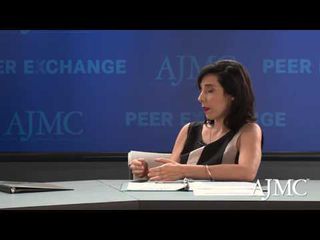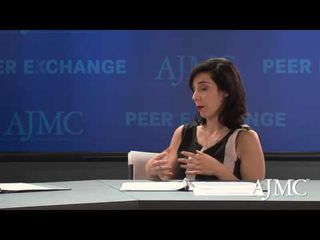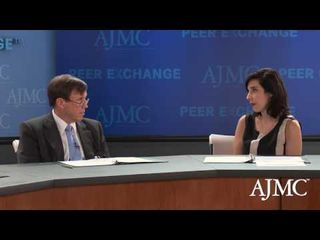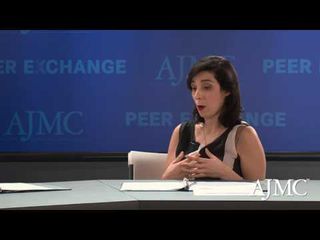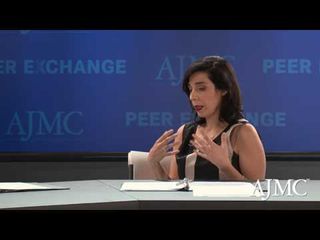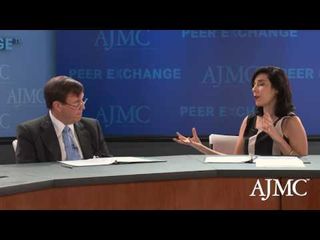
Alternative Payment Models
Latest News
Healthcare reform pledged to do better for patients with heart failure, creating the incentives and team-based approaches these fragile patients need. In some cases, this has happened, but there have also been unintended consequences, according to a panel appearing Sunday at the 67th Scientific Session of the American College of Cardiology, being held in Orlando, Florida.
Latest Videos

CME Content
More News

The first results of the Oncology Care Model (OCM), a 5-year bundled payment demonstration from CMS, were released recently, and at a session at the National Community Oncology Dispensing Association Spring Forum 2018, Mike Fazio of Archway Health discussed the reconciliation statements from the first performance period of OCM, and where practices can look to make improvements going forward.

Aledade and Horizon Blue Cross and Blue Shield of New Jersey partner to help practices take advantage of payment models that reward physicians who offer better quality care while lowering costs.

An opinion piece in the Annals of Internal Medicine makes the case for shifting value-based payment models to address the issue of healthcare disparities directly into hospitals’ financial calculations, incentivizing institutions to address the issue head-on without sacrificing quality.

Coverage of value updates from Patient-Centered Oncology Care, November 16-17, 2018.

Commercially insured individuals with health plans with value-based contracts for diabetes, high cholesterol, and HIV medicines had average co-pays that were 28% lower for those prescription medications compared with people on other plans, according to a report from the Pharmaceutical Research and Manufacturers of America (PhRMA).

A survey of healthcare executives finds that ongoing issues with interoperability are holding back the transition to value-based reimbursement mechanisms. Humana's Chief Medical Officer, Roy A. Beveridge, MD, said the healthcare system must demand the same level of seamlessness seen in the banking industry.

The American Hospital Association (AHA) recently asked CMS to delay the application deadline for its new bundled payment model by about a month so that additional programmatic information can be communicated to healthcare providers, systems, and clinicians. The AHA asked for the new information to be released by March 1 and for the program’s application deadline to be delayed from March 12 to April 16.

A new National Bureau of Economic Research working paper identified potential hospital cost shifting and that hospitals penalized by the Hospital Readmission Reduction Program and the Hospital Value-Based Purchasing Program actually had an increase in average payments of 1.5%.

Value-based care and interoperability continue to progress in the United States, but barriers that limit sharing of clinical information among hospitals, physicians, and health plans remain, according to a study by the Healthcare Financial Management Association (HFMA) and sponsored by Humana.

The results of a new survey, published in a recent white paper by HealthCare Executive Group and Change Healthcare, showed that a majority of executives are increasingly adopting social determinants of health into their programs.

From 2013 to 2016, Medicare Shared Savings Program accountable care organizations (ACOs) improved quality. Continued infrastructure development funding, better relationships with postacute care facilities, and shared learnings among diverse ACOs would maximize quality improvement.

From 2013 to 2016, successful Medicare Shared Savings Program accountable care organizations reduced spending by shifting expenditures from the inpatient and postacute care setting to the physician office setting.
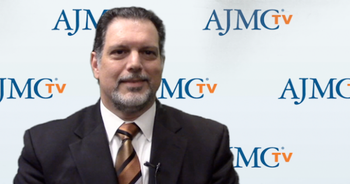
We want to know all sides of the 2-risk model, like with any challenge or strategy, said Roger Brito, DO, national director for oncology, Aetna.

Every week, The American Journal of Managed Care® recaps the top managed care news of the week, and you can now listen to it on our podcast, Managed Care Cast.

This week, the top managed care stories included Indiana being approved as the second state to implement work requirements in Medicaid; research found 5-year survival rates for cancer are increasing; coverage from the American Society of Clinical Oncology's 2018 Genitourinary Symposium.

In healthcare, the “volume-to-value” movement seeks to align the interests of healthcare providers with the societal triple aim of better care, better health, and lower costs. The devil, as always, is in the details.

Before undertaking something like implementing the Oncology Care Model, practices should understand the scope of the project and the overall importance it can have for patient care, said Terrill Jordan, CEO of Regional Cancer Care Associates.

Risk-sharing contracts between pharmaceutical manufacturers and health insurance providers could be the answer to reducing the rising drug prices in the United States.

When you have constant evolving contract, there are changes, and so some of the feedback I’m getting is that sometimes it’s hard to keep up with the changes, said Peter Aran, MD, medical director of Population Health Management at Blue Cross Blue Shield of Oklahoma.

Every week, The American Journal of Managed Care® recaps the top managed care news of the week, and you can now listen to it on our podcast, Managed Care Cast.

Replacing the Merit-based Incentive Payment System (MIPS) with a voluntary program should encourage providers to move quicker into more risk-based payment models, according to Travis Broome, vice president for policy at Aledade.

This week, the top managed care news included President Donald Trump vowing to lower drug prices during his State of the Union address; 3 corporate giants joined forces on healthcare; and CAR T-cell therapy was named the cancer advance of the year.

With adoption of electronic health records around 90%, the Office of the National Coordinator of Health Information Technology is now focusing on increasing usability and interoperability.

The benefits and challenges of joining CMS' Virtual Group option for healthcare providers to report their Quality Payment Program (QPP) measures from 2018.
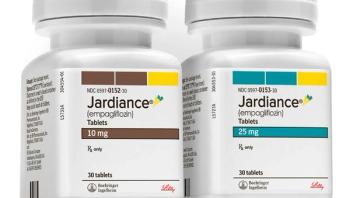
Empagliflozin (Jardiance) and another SGLT2 inhibitor, canagliflozin (Invokana) have been competing aggressively; both have clinical trial results showing cardiovascular benefits.





